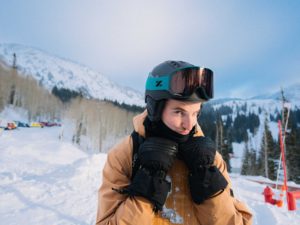May 10, 2022

Organizations like Safe Space NOVA are life-changing and life-saving. In one’s quest to accept and express who they are, there’s nothing more important than representation and support. Finding any community of queer people is one of the most important steps in moving past the internalized queerphobia that our society embeds in us.
The 14-18 age range is probably the most impressional age group there is. People are old enough to think for themselves and make their own decisions, while simultaneously going through puberty, high school, and a period in life where we often get caught up in what others think about us. This age is when many people I know started to use drugs and engage in unhealthy behaviors, and I think a lot of that is due to not having any positive outlets to learn how to cope with the past and present trauma we go through.
In my own journey, the biggest roadblock I faced was representation within my small niche of the LGBTQ+ community. When I was in middle school, I fell in love with rap music, skateboarding, and snowboarding. Unfortunately, in the early 2000s, none of these were very friendly to queer people. I struggled with my identity for many years, feeling like my budding gayness was at odds with my favorite things in life. It wasn’t until I found inspiration through famous people within those communities, like Brian Anderson (skateboarder), Cheryl Maas and Jake Kuzyk (snowboarders), Kevin Abstract, Young M.A., and Tyler, the Creator (rappers) that I was able to reconcile my formerly conflicting identities. As I grew older, I began to find people within my personal community who shared my interests and queerness, and this helped me move past the acceptance of myself and into the expression and gratitude towards the unique, interwoven tapestry that makes up me.
I spent many years of my life dealing with the issues of depression, anxiety, and substance abuse. Most of it was due to my inability to come out of the closet. I coped for many years by partying, was constantly monitoring my behavior to keep queer ideas out of my mouth, and I eventually hit a breaking point. After coming out, and learning to recondition myself to actually be honest and genuine, I was faced with all of the other big questions in life: What’s important to me? Who do I want to be? What do I want to do with my life? These are the important questions that we each need to face and answer. Though it may be a lifelong journey to answer these questions, the drama and difficulty of accepting our own identity make these questions that much harder to answer, and I think we have to accept ourselves before we can start to answer these pressing life questions. But the journey of coming out of the closet is an important one. It’s an accomplishment in itself. It teaches us invaluable lessons and I wouldn’t trade it for anything in the world!
